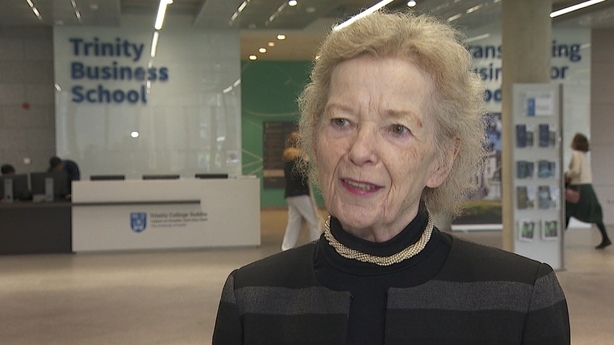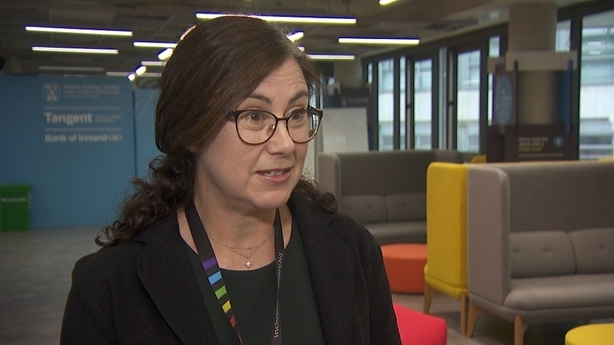Wealthy countries aiming for carbon neutrality in 2050 or beyond should speed up their goal to as close as possible to 2040 in order to "defuse the climate time bomb", UN Secretary General Antonio Guterres said.
Introducing a capstone report by the Intergovernmental Panel on Climate Change on the impacts and trajectory of global warming, Mr Guterres delivered a blunt assessment of the challenge to prevent climate catastrophe.
"Humanity is on thin ice - and that ice is melting fast," the United Nations chief said in a video message as the IPCC experts group issued its latest report, which he likened to "a survival guide for humanity".
Mr Guterres said the world still has time to limit average temperature increases to 1.5 degrees Celsius compared to pre-industrial times but this requires "a quantum leap in climate action" by all countries in all sectors.
"It starts with parties immediately hitting the fast-forward button on their net zero deadlines," Mr Guterres said, but he acknowledged countries have different levels of responsibility and ability to change course.
Rich countries should commit to achieving carbon neutrality as close as possible to 2040, he said, "the limit they should all aim to respect".
As things stand now, most rich countries have set their goal at 2050, but some are more ambitious, like Finland (2035), or Germany and Sweden (2045).
Hopes report will be a wake up call - Robinson

Former President and Adjunct Professor of Climate Justice Mary Robinson has said she feels "we are on the cusp of a cleaner, safer world", if climate promises by governments are adhered to, adding: "Let's go there."
However she warned that if this did not happen, "we're headed for a world of about 2.4 degree warming … or probably 2.7 or 3 degrees", which would mean "people will not be able to live".
She was speaking at Trinity College Dublin ahead of the report launch.
Mrs Robinson said all of the reports from the IPCC to date have been "very stark and warning that we are not on course for a safe world", and she hoped this report would be a wake up call.
She said the Irish Government must now stay within the targets it had set to reduce emissions, "and not start putting it off when decisions get a bit hard".
Mrs Robinson said she did have a lot of hope for innovation in the area of sustainability and science, particularly through universities: "That's the essence of the science and the good news is that renewable energy has become massively more available much, much quicker than was forecast and it is much cheaper," she said.
She said recent extreme weather events such as in Pakistan, Mozambique, California and even in Europe showed "governments must take this more seriously".
She said finance to mitigate against climate change was "absolutely crucial".
"There's never been enough climate finance and many of us, The Elders that I'm the chair of, we are calling for something like the Bridgetown initiative (put forward by the government of Barbados) which would open the coffers of both the UN and the IMF for much more money and then trillions from the private sector because the public money de-risks investing in developing countries. At the moment if you're investing in a developing country, the interest rate is much, much higher."
She said there was evidence recently of more cooperation happening between countries, including the support for South Africa to come out of coal, as had been seen in COP26 in Glasgow.
She said after this latest report published today, there would be a big gap until the next AR7 report in about 2027 or 2028 adding: "We've only 7 years until 2030 and we have got to cut emissions by at least 48%"

Vice President for Biodiversity and Climate Action Jane Stout said the report was significant as it had been put together by hundreds of scientists from around the world, assessing the most recent and up-to-date evidence.
"This report is really important because its an agreement between governments that this is a problem. That business as usual is no longer an option."
She said the message was stark: "Things aren't getting any better. Things are getting worse, the climate crisis is accelerating and we're unlikely to stay within 1.5 degrees of warming. We're likely to exceed that in the next decade and the impacts of that could be devastating."
In terms of biodiversity and ecosystems, Ms Stout said a 1.5 degree temperature rise that is sustained over years or decades could have irreversible effects.
She said Ireland was already being affected by climate change when it came to extreme weather events and food shortages "as a result of climate change elsewhere in the world".
Speaking on RTÉ's Morning Ireland, Dr Tara Shine, Co-CEO of sustainability business Change by Degrees, said the precursors of this report showed the state of the science, how climate change is already impacting and what is needed to be done to get it under control.She said the synthesis report today is aimed at decision makers so they can use the data to decide policy and "it's aimed at putting the science in the hands of those that make the decisions".
Dr Shine, a former special adviser to the Mary Robinson Foundation - Climate Justice, said "it's a recap of what's been said already and it's really a very important communications document. So, this is trying to figure out from all the information they have gathered from over 100,000 papers that they've reviewed, what are the most important points that decision makers need to know.
"So, I expect it to say a lot about that magic goal of 1.5 degrees, and how that's so much safer than any temperature goal, even a tiny little bit above that."
We need your consent to load this rte-player contentWe use rte-player to manage extra content that can set cookies on your device and collect data about your activity. Please review their details and accept them to load the content.Manage Preferences
Dr Shine added "And it's going to say we need to do an awful lot of work to halve emissions by 2030 in order to achieve the goal of net zero carbon by 2050.
"So, we have a lot to do right now to start changing things."
Dr Shine said the report is going to tell us "we're way off track and that we need to implement now and we know what to do, but we just need to get on with it".
She said the reports do lead to change and incrementally these reports directly inform what countries do at a national level.
Additional reporting: Eleanor Burnhill


